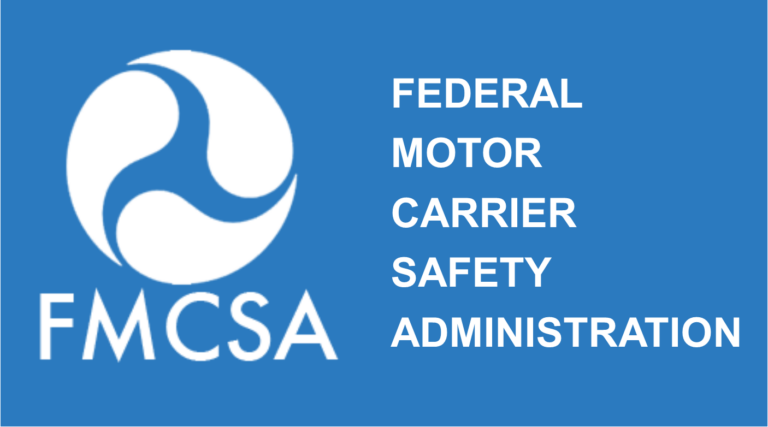It's a Team's Life

FMCSA Sexual Assault Harassment (SASH) Study
The Federal Motor Carrier Safety Administration (FMCSA) is looking for input from the public on how best to conduct a study. This study will be to understand and prevalence and severity of sexual assault and harassment (SASH) over the trucking industry. The main focus of the study will be on drivers of Commercial Motor Vehicles (CMVs).
FMCSA seeks information on how best to design and conduct a study to identify, categorize, and assess context and trends of SASH in the CMV industry. FMCSA is particularly interested in how to support women currently in these jobs and those seeking to enter the CMV industry. This RFI seeks information on how best to approach this study holistically in terms of statistical sampling, study design, and administering the appropriate data collection efforts. For example, FMCSA seeks information on how best to treat categories of gender, sexual orientation, and ethnicity in the study, as well as best practices in designing questions that use the latest standards for SASH research and address the breadth and lifecycles of careers in the CMV industry. This study builds on recommendations from FMCSA's Women of Trucking Advisory Board (WOTAB) to better understand problems of SASH among drivers, thereby helping identify possible countermeasures. FMCSA will use the results of this study to understand any potential regulatory or policy measures needed to improve driver safety and mitigate SASH; work with industry partners on outreach and other efforts to improve driver safety through SASH prevention; and support the participation of women in the CMV industry.
Federal Notice and Instructions for Submitting Comments: Request for Information: Study of Sexual Assault and Sexual Harassment in the Commercial Motor Vehicle Industry
Comments on this Federal Notice must be received on or before March 11, 2024.
Here is background from the Federal Notice:
SASH are long-standing challenges for the CMV driving community, particularly for women. Addressing these challenges is a priority for the Department, FMCSA, and WOTAB. (1 2) Through previous research efforts, FMCSA sought to understand, characterize, and assess the prevalence and severity of SASH within the CMV industry. FMCSA had little information on the breadth of SASH problems in the industry or recommendations for solutions, and a study, Crime Prevention for Truckers Study, helped frame the issues, including how to best support women in CMV careers through countermeasures designed to mitigate SASH. (3) Further, this study evaluated harassment of women and minority men truckers with incidents among non-minority men serving as a control group.
The study found that harassment and crime against drivers are prevalent. Drivers reported a range of harassment types, such as being called offensive names or threatened with weapons. Further, harassment is not limited by gender and race, as the study found it extends to religion, lifestyle, and sexual orientation. The study concluded that women truck drivers are particularly vulnerable to crimes that are sexual in nature and are more likely to experience harassment from another truck driver or from trainers. Crimes against women truck drivers are more likely to happen at night, though they also occur throughout the day and cycle of a driver's run.
The study further found that many harassment incidents go unreported, but women are reporting more than men. Most respondents said that they did not think reporting harassment would make a difference. Many felt there might be retaliation or problems in some way, and they chose not to report the incident(s). However, women truck drivers were found to be two to four times more likely to report being touched without permission compared to non-minority men, and minority women were up to nine times more likely to report being physically harmed compared to non-minority men. Non-minority women are two to six times as likely than non-minority men to be touched without permission. The study included recommendations that were taken from the survey respondents' comments (although these recommendations were not evaluated to determine feasibility, appropriateness, and most importantly, their ability to improve driver safety).
When the study was released, WOTAB received several comments, formally and informally, from industry groups and organizations focused on researching and stopping violence against women and SASH. (4 5 6) These organizations expressed concern that the FMCSA study was not comprehensive and that more questions needed to be asked to determine the full nature of the SASH problem. Key areas of concern included:
1. Sample design and categories of gender, sexual orientation, and ethnicity.
2. Types of questions asked to capture SASH and not using the latest standards in SASH research to design questions.
3. Development of appropriate and evaluated recommendations to inform actions for SASH prevention.
While the study framed the SASH issues in the industry and provided some preliminary data to understand magnitude, WOTAB's discussions on the study and other issues for women in the CMV industry indicated a need for additional research, especially to support improved participation of women in CMV careers. Additional research was suggested to support potential policy changes that would address improvements to current practices and reporting methods for drivers related to SASH, and to establish improved outreach and safety resources. WOTAB noted in particular that it is important to understand SASH with additional depth and breadth to ensure there is an awareness of the magnitude of SASH across the industry.
Therefore, FMCSA seeks to develop a comprehensive, expanded study that achieves a deeper framing and understanding of baseline data and issues related to SASH. FMCSA seeks input from stakeholders to help in the design of a new study.
Sandy & Stephen
We’re Burning Daylight - “Wil Anderson” (The Cowboys) John Wayne
